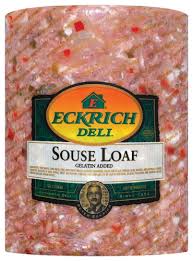
记忆方法
souse----"缫丝"--(纺织工业中的一道工序)浸在水中
1. 将蚕茧抽出蚕丝的工艺概称缫丝。原始的缫丝方法,是将蚕茧浸在热盆汤中,用手抽丝,卷绕于丝筐上。盆、筐就是原始的缫丝器具。
1. 将蚕茧抽出蚕丝的工艺概称缫丝。原始的缫丝方法,是将蚕茧浸在热盆汤中,用手抽丝,卷绕于丝筐上。盆、筐就是原始的缫丝器具。
中文词源
souse 腌,腌制
来自古法语 sous,盐渍的,腌制的,来自 Proto-Germanic*salt,盐,词源同 salt,sauce,sausage.
英语词源
- souse
-
souse: [14] To souse something is etymologically to steep it in ‘salt’. The word comes via Old French sous from Old Saxon sultia or Old High German sulza ‘brine’, descendants of the prehistoric Germanic base *salt-, *sult- (from which English gets salt). The notion of pickling something in brine soon broadened out to pickling in other liquids, such as vinegar, and by the 16th century souse was being used metaphorically for ‘drench’.
=> salt - souse (v.)
- late 14c., "to pickle, steep in vinegar," from Old French sous (adj.) "preserved in salt and vinegar," from Frankish *sultja or some other Germanic source (compare Old Saxon sultia "salt water," Old High German sulza "brine"), from Proto-Germanic *salt- (see salt (n.)). Related: Soused; sousing.
- souse (n.)
- something steeped in pickle, especially "pig parts preserved and pickled," mid-15c., earlier "liquid for pickling" (late 14c.), from souse (v.) or from its French source.
权威例句
- 1. Souse fish used to be one of her favorite dish.
- 腌鱼曾经是她最喜欢吃的菜之一.
- 2. They gave him a souse.
- 他们把他投入水中.
- 3. When it is warm enough, the children souse into the swimming pool.
- 当天气够暖和时, 孩子们就投入到游泳池中.
- 4. She likes to souse everything she eats in tomato ketchup.
- 不论吃什么,她都喜欢放许多番茄酱.
- 5. The boy went souse into the water.
- 这男孩扑通地跳到水里去了.